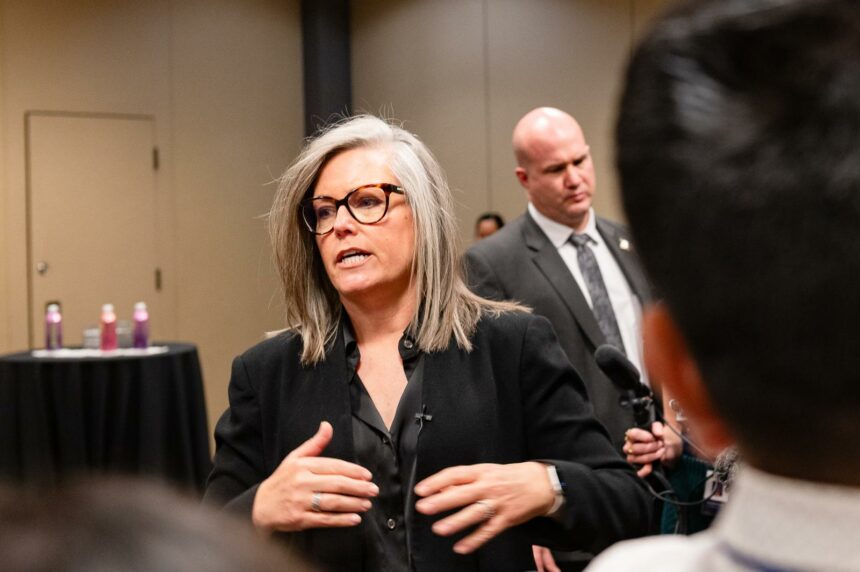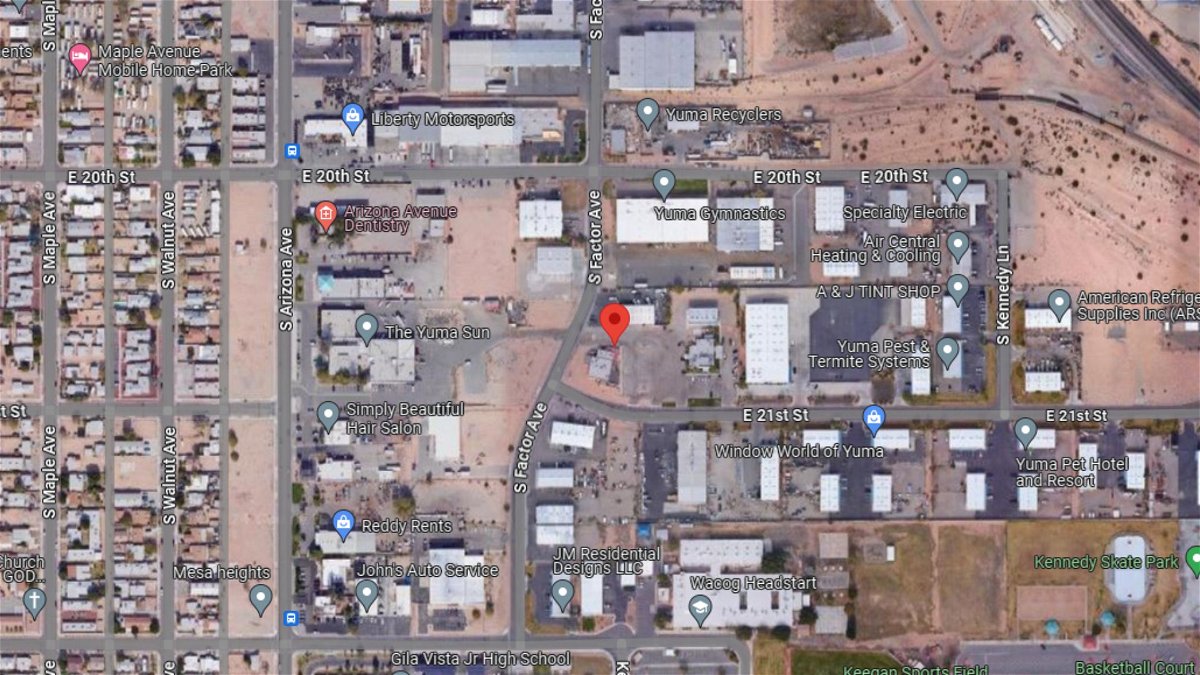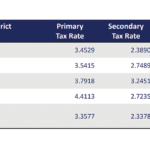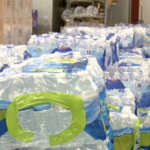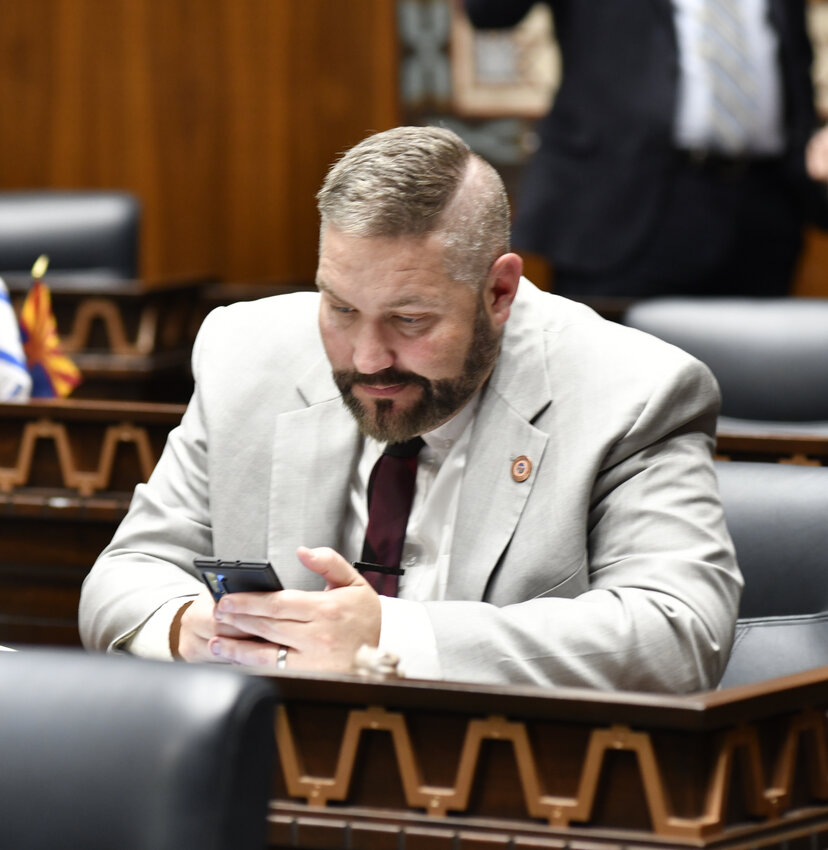Just weeks before Pima County said it will stop sheltering most asylum seekers, citing a lack of funds, Arizona Gov. Katie Hobbs pushed Congress to grant $752 million as part of a Homeland Security bill.
Hobbs joins U.S. Sens. Kyrsten Sinema and Mark Kelly in urging Congress to back the county’s long-running shelter operation before March 31—Easter Sunday—when county officials said they would shutter operations. Already, the county has moved to wind down their role in providing temporary respite for asylum seekers, and warned next month around 450 people could be released directly to Tucson’s streets per day.
Hobbs sent her letter to key leaders of the Senate and House
Appropriations Committees and said the funding is of the “utmost
importance” and would provide “critical humanitarian assistance and
alleviate the immense strain faced by local governments and
non-governmental organizations” in the state.
“The
challenges faced by Arizona and its border communities are palpable,”
Hobbs wrote. As current funding runs dry, “Arizona border communities,
law enforcement and charitable organizations find themselves on the
brink of operational limitations,” she wrote. “Without additional
support, critical services could be compromised, placing both migrants
and local residents at risk.”
The funding will “make the border more secure and help
local communities avoid a federal funding cliff that could threaten
street releases due to federal inaction,” the Democratic governor wrote.
Tucson has become a waypoint for asylum seekers who make irregular
crossings in Arizona’s vast wilderness and then ask responding Border
Patrol agents for protection in the U.S. Limited by immigration law, a
series of court strictures, and the logistics of individual stations,
U.S. Customs and Border Protection and other federal authorities
release migrants from custody, allowing them to travel to other parts
of the U.S. while pursuing their asylum cases.
For the last five years, Pima County has sought to avoid “street releases” of migrants after they are processed by CBP, providing refuge for 423,398 people in a partnership with Catholic Community Services at shelters in Tucson. Further, since last September, Pima County’s effort— aided by state emergency managers—transported thousands of people dropped off by CBP in Cochise and Santa Cruz counties.
Pima County officials have repeatedly told Washington D.C. they need additional funds to cover shelter operations—which cost around $1 million per week to take in as many as 1,000 people arriving each day. However, Congress has so far refused to fund the Shelter and Services Program, managed by the Federal Emergency Management Administration, for this year.
In her memo to area elected officials, Pima County Administrator Jan Lesher wrote that federal funds for legally processed asylum seekers will be exhausted by the end of March.
“I had hoped the U.S. Congress would pass a border and immigration bill that would provide the further funding necessary to continue the multi-agency effort to protect Tucson and other regional border communities from having hundreds of people a day released onto city streets without shelter or support,” Lesher wrote. “It is my understanding that the likelihood of further funding being approved in the coming weeks is negligible, if not zero.”
“This not as a surprise,” said Tucson City Councilman Steve Kozachik. “The county has been saying this for months, the funding is going to run out.”
“And, this should come as no surprise to anyone in Washington D.C., but there’s a group of people who are simply using immigration as a political weapon,” he said. “They don’t particularly care about this, and they are probably looking forward to seeing chaos on our city streets so they can argue ‘This is what the Biden administration has brought us to.'”
Pima County ends contract, prepares for street releases
While state leaders continue to press for federal funding, Pima
County moved to end contracts that backed the shelter operations,
and Catholic Community Services began dismissing employees. On Friday,
the Pima County Health Department wrapped up their contract with
Jot Properties for a hotel used to host asylum seekers who tested
positive for COVID-19.
It remains unclear how many people
will be left without shelter. However, county officials estimated in a
report published this week that 450 asylum seekers per day could be released in
Tucson.
Without federal funds,
the county will no longer maintain current operations and “contingencies
are being developed” by Catholic Community Services to “serve a much
reduced number of families with young children and those with medical
issues.”
From Feb. 29 to March 6, the
Casa Alitas Welcome Center hosted 5,847 people, averaging around 835
people per day, Pima County officials said. This includes about 3,905 families including children.
While figures remain high, this is down from a peak in December when the county sheltered 9,114 people around the Christmas holiday.
In January, CBP officials encountered 176,205 people. This includes 124,220 people who crossed in the U.S. between the border crossings, as well as thousands more who entered the U.S. through a border crossing after scheduling an appointment through the agency’s CBP One app.
Border Patrol agents in the Tucson Sector—which extends from the Yuma County line to the New Mexico border—encountered over 50,000 people in January, the highest number in the nation. Around 53 percent were families traveling with children, or children traveling without parents or guardians, and nearly 28,000 people were from Mexico, including hundreds of people who fled gang violence in Sasabe, Sonora.
Border Patrol agents have been encountering people across the Arizona-Mexico border, including thousands in the remote Organ Pipe Cactus National Monument, about 120 miles southwest of Tucson, and hundreds more just south of ranch land and the Buenos Aires National Wildlife Refuge.
It remains unclear how many people will be released to Southern Arizona by the Border Patrol’s nine stations. However, Pima County officials estimated people will be released without shelter—including families—in Tucson, Nogales and Douglas, officials said.
This will also affect Nogales, where around 200 people per day will be released without shelter. Further, in Douglas, around 40 people each day will be released without shelter or
transportation, the county estimated.
Challenges are ‘palpable’
On Feb. 19, Pima County’s Lesher warned of “homelessness on steroids” once the shelter winds down, leaving hundreds of people on Tucson’s streets. The lack of funding means small cities along the border, including Douglas and Nogales, will face their own issues as the county helps manage and transport migrants to Tucson.
The looming lack of funding has led some local leaders to make dramatic suggestions—such as sending migrants to area military bases—to prompt more federal action. Lesher told the Tucson City Council that it’s time to “sound the alarm” about the issue. Meanwhile, Donald Huish, the mayor of Douglas said his community is in “full shock” as the funding cliff nears with the situation “fast becoming desperate.”
Hobbs said Pima County has played a “pivotal role” in providing services to migrants, but faces “challenges in sustaining these services” beyond the March 31 deadline. The Regional Center for Border Health in Yuma and International Rescue Committee in Phoenix face “similar obstacles despite their vital contributions to coordinating migrants transportation in Yuma County.”
“Arizona’s border
is more than a convenient location for politicians to take photo ops and
stage press conferences,” Hobbs said in a statement. “It’s where my
constituents live, work, and raise their families. My state has done
everything possible to deliver safety and security to those communities,
but we need Congress to step up and do its job.”
“It is
unacceptable that the security of everyday Arizonans has taken a
backseat to political games in Washington, DC, forcing working families
in my state to bear the burden of congressional inaction. It’s time to
prioritize practical solutions over political maneuvers,” she said in
her letter.
Hobbs also pushed Congress to pass the Border Act of 2024.
For months, Sinema worked with Sen. James Lankford, a Republican from Oklahoma and Sen. Chris Murphy, a Democrat from Connecticut, to negotiate a new immigration bill with the White House. In early February, Senate Majority Leader Chuck Schumer released the $118.28 billion bipartisan bill, which included military aid for Ukraine and Israel, as well as the long-awaited border measures.
Despite widespread support, however, the bill ran aground after ex-president Donald Trump said he was against it. House Speaker Mike Johnson declared it “dead on arrival” and the bill expired without a single hearing.
Hobbs said the bipartisan legislation “not only strengthens resources to DHS, but also provides vital support for cities and states, like Arizona, grappling with irregular migration.”
She noted the bill would not only provide around $1 billion for SSP, but also would bolster CBP with 1,500 people, as well as fund non-intrusive scanners that have been purchased, but not installed, at border crossings in Nogales to intercept fentanyl and other contraband.
“These measures not only enhance border security but also protect our communities from the devastating impacts of drug trafficking,” she said. “This funding is not merely a request; it is a necessity and serves as the linchpin in addressing the complex challenges on our border and ensuring the safety and security of our communities.”
Source link
Paul Ingram , www.tucsonsentinel.com
border Vivrr Local | TucsonSentinel.com , 2024-03-15 22:00:25
Categories:
Tags: breaking, news, politics & government, border, crime & safety, faith, family/life, health, local, arizona, asylum, board of supervisors, border patrol, casa alitas, cbp, ccs, congress, dhs, fema, house, immigration, jan lesher, katie hobbs, krysten sinema, mark kelly, pima county, senate, Hobbs pushes for border funding as Pima County begins winding down migrant shelters, , Tucson, Tuscon, TucsonSentinel, Tucson Sentinel, TusconSentinel, Tuscon Sentinel, Sentinal, TucsonSentinal, Tucson local news, Tucson news, University of Arizona, UA, Arizona news, Ariz., AZ, Arizona, Marana, Oro Valley, Green Valley, Sahuarita, Pima County, Mexico, Nogales, immigration, Border Patrol, Tucson Citizen, TucsonCitizen.com



